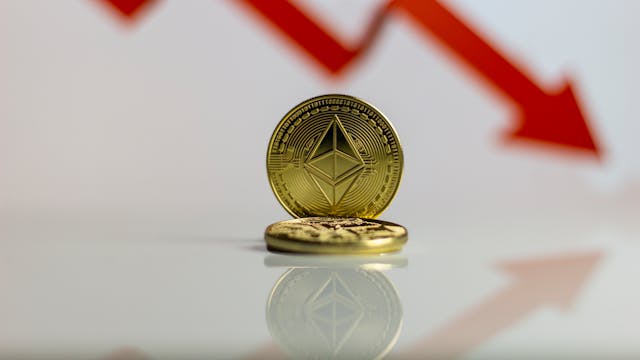How to invest in gold in India: For many years, gold has been a reliable financial choice and an essential component of Indian culture. Indian investors continue to be drawn to gold investments for a variety of reasons, including financial stability, cultural importance, and inflation protection. This article will help you learn about the several ways to invest in gold, the advantages, and the things you should think about if you’re new to the market.

Why Make a Gold Investment?
Hedge Against Inflation: Gold is a dependable store of wealth since it often maintains its value and even increases in inflationary times. Gold serves as a safe haven to maintain your buying power in an environment where prices for goods and services are always rising.
Safe Haven Asset: Gold frequently performs better than other asset classes during times of economic uncertainty or geopolitical unrest, giving investors a safety net.
Diversification: By counteracting the volatility of the debt and equity markets, gold helps lower overall risk in your investment portfolio. It serves as a tick on other investments.
Cultural Significance: Gold is a representation of wealth, prestige, and heritage in India in addition to being an investment. Due to its strong integration into Indian religious rites, marriages, and festivals, it is both an emotional and a monetary treasure.
Methods for Purchasing Gold in India
1. Real gold
The most conventional and well-liked method is to invest in actual gold. This covers gold bars, coins, and jewellery.

- Gold Jewellery: Gold jewellery is frequently bought for sentimental and cultural reasons, but it has extra expenses, such as manufacturing fees, which can account for 10% to 25% of the total cost of the gold. Due to reductions for purity testing and charge making, the resale value may also be reduced.
- Gold Coins and Bars: Because they are easier to store and have smaller premiums than jewellery, gold coins and bars are better suited for investment reasons. Small investors can purchase coins since they come in a variety of denominations.
- Where to Purchase: Reputable jewellers, banks, and government-approved stores are good places to purchase actual gold. Make sure you always obtain a purity hallmark certification.
Advantages: Easy to liquidate, cultural value, and tangible asset.
Cons include high storage expenses, potential theft, extra fees including manufacturing fees, and decreased resale value as a result of deductions.
2. Exchange-traded funds (ETFs) for gold
Mutual funds that invest in actual gold are known as gold exchange-traded funds, or ETFs. Usually, one gram of gold is represented by each unit, and prices fluctuate in lockstep with market rates.
- How to Purchase: To purchase Gold ETFs, you must have both a trading account and a Demat account.
- Where to Purchase: The National Stock Exchange (NSE) or Bombay Stock Exchange (BSE) provide online brokers for purchases.
Advantages: Transparent pricing, no storage fees, ease of trading, and strong liquidity.
Cons: Broking costs apply, and both a trading and Demat account are necessary.
3. SGBs, or Sovereign Gold Bonds
The Reserve Bank of India (RBI) issues government-backed bonds, or SGBs. For long-term investors seeking consistency and profits, they are a great choice.
Important attributes:
- Receive a 2.5% yearly interest payment on a semi-annual basis.
- The current market price of gold is correlated with redemption value.
- If kept until maturity, there is no capital gains tax.
Where to Buy: During issue periods, SGBs are available for purchase at stock exchanges, banks, and post offices. Secondary marketplaces are another place where they are exchanged.
Advantages include no storage fees, tax advantages if held to maturity, and interest earnings in addition to capital appreciation.
Cons include a fixed eight-year maturity duration, little liquidity prior to maturity, and possible secondary market price swings.
4. Gold Digital
With the ability to purchase tiny amounts online, digital gold is a new and practical investment option. This service is provided by platforms such as Google Pay, Paytm, and PhonePe.
- How It Operates: The service provider backs your money with actual gold that is kept in safe vaults.
- Where to Purchase: Websites, mobile applications, and online platforms that provide services for investing in digital gold.
Benefits include fractional ownership, inexpensive entrance costs (starting at about ₹100), and extreme convenience.
Cons: There is no set regulatory framework, there may be restricted selling choices, and storage fees may apply after a given amount of time.
5. Mutual Funds for Gold
These mutual funds purchase equities of gold mining firms or gold exchange-traded funds (ETFs). They offer gold exposure without the need for a Demat account.
- How to Invest: By using financial counsellors, applications, or mutual fund platforms.
Advantages: Diversified exposure, expert management, and no requirement for a Demat account.
Cons: Returns are tangentially tied to gold prices, and the expense ratio is higher than that of gold exchange-traded funds (ETFs).
6. Options and Futures for Gold
Advanced financial products appropriate for seasoned traders include gold futures and options. Without really holding the gold, these let you speculate on its price.
- Where to Trade: Trading locations include commodity exchanges such as the Multi Commodity Exchange (MCX).
Advantages: No physical storage is needed, leverage is possible, and profit potential is high.
Cons: Leverage increases risk, necessitates market knowledge, and can lead to large losses in the event of a negative price movement.
Things to Take Into Account Before Purchasing Gold
Determine if your investment is being made for portfolio diversification, wealth preservation, or cultural reasons. This will assist you in choosing the most advantageous investment path.

Cost of Investment: Take into account extra expenses like commissions for jewellery, storage fees for real gold, or broking fees for mutual funds and exchange-traded funds.
Liquidity: Unlike SGBs, which have a set maturity term, physical and digital gold are more liquid. Make sure the investment fits your requirements for liquidity.
Market Trends: Monitor gold prices, worldwide economic developments, and elements that affect gold’s worth, such as inflation and exchange rate swings.
Tax Repercussions:
- Short-term capital gains: Capital gains with a holding duration of less than three years are subject to taxation at the rate of your applicable income tax bracket.
- Long-term capital gains: With indexation benefits, long-term capital gains (those held for more than three years) are subject to 20% tax.
Security: Make sure you have a safe and secure location to store any actual gold you purchase. ETF and digital options remove this worry.
When Is the Right Time to Invest in Gold?
During Economic Uncertainty: Gold is a good asset to your portfolio since its value often increases during periods of economic or geopolitical unrest.
Festive Seasons: Diwali, Akshaya Tritiya, and Dhanteras are great times to invest since many jewellers provide discounts or special deals during these occasions.
Price Dips: Keep an eye on market prices and think about making an investment when there is a correction or when prices are low.
Advantages of Gold Investing
Global Acceptance: Gold is a highly liquid asset that can easily exchanged or sold anywhere in the globe due to its universal worth.

Preservation of money: The value of gold doesn’t fluctuate over time, shielding your money from being eroded by inflation or currency depreciation.
Portfolio Diversification: Including gold in your holdings lowers overall investment risk and offers stability when markets decline.
Cultural Value: Gold is a vital treasure that has been handed down through the centuries in India due to its emotional and cultural value.
Actual Ownership: Unlike stocks or bonds, actual gold gives the assurance of tangible ownership, which many investors find reassuring.
Typical Errors to Avoid in Gold Investing
Overinvesting: Putting too much of your portfolio into gold can impair returns from other asset classes, such as mutual funds and stocks, and limit diversity.

Ignoring expenses: Your total returns may be reduced if you neglect to include making charges, storage fees, or broking expenses.
Lack of Research: Making poor decisions might result from a lack of knowledge about the many gold investing possibilities. Spend some time determining what best suits your financial objectives.
Emotional Buying: Steer clear of making rash gold purchases at festivals or weddings without taking market values or investing objectives into account.
Short-Term Focus: Long-term investments are the ideal fit for gold. Losses may result from speculative trading attempts to generate rapid profits.
Conclusion
For Indians, gold is still a timeless and worthwhile investment choice. It’s critical to match your investment with your risk tolerance and financial objectives, regardless of whether you choose actual gold, ETFs, or sovereign gold bonds. You may make wise choices that will protect your financial future by being aware of the advantages and disadvantages of the different possibilities.
Keep in mind that gold is best considered as a long-term investment, start small, and be consistent. You may get both financial security and cultural fulfilment by investing in gold with the correct strategy.
Beginner’s guide to investing in mutual funds

